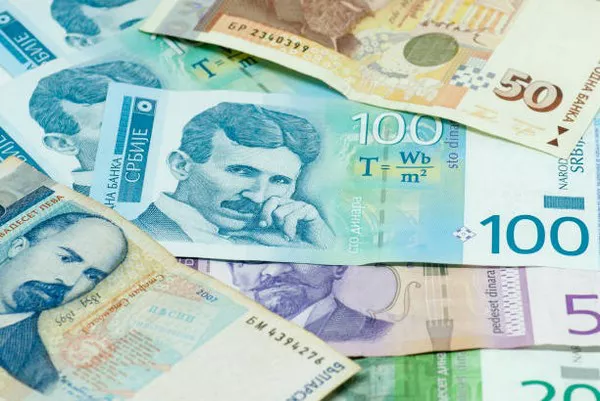The strength of a nation’s currency is often indicative of the overall economic stability and prosperity. In the case of the Bulgarian lev, its resilience and strength have been notable in recent years. While global economic landscapes are often characterized by volatility and uncertainties, Bulgaria’s currency has managed to stand firm against the odds. This article delves into the various factors that contribute to the strength of the Bulgarian lev, shedding light on the economic policies, external influences, and domestic factors that have played pivotal roles in shaping the currency’s robust performance.
Economic Stability and Fiscal Responsibility
One of the primary drivers behind the strength of the Bulgarian lev is the country’s commitment to economic stability and fiscal responsibility. Bulgaria has consistently adhered to prudent fiscal policies, maintaining low levels of public debt and budget deficits. The government’s commitment to fiscal discipline has garnered the trust of international investors, creating a stable economic environment that supports the strength of the currency.
Currency Peg to the Euro
Bulgaria’s decision to peg its currency, the lev, to the euro has been a crucial factor in maintaining stability. Since 1997, the lev has been pegged to the euro at a fixed exchange rate. This peg provides a level of predictability for businesses and investors, reducing the risk associated with currency fluctuations. The peg to the euro also fosters confidence in the lev’s value, as it aligns with the stability of the larger Eurozone.
Sound Monetary Policy
The Bulgarian National Bank (BNB) has played a pivotal role in ensuring the strength of the lev through sound monetary policies. The BNB has consistently pursued policies aimed at controlling inflation and maintaining a stable currency. By implementing measures such as interest rate adjustments and prudent monetary management, the central bank has effectively steered the country’s economy, contributing to the lev’s resilience.
Foreign Exchange Reserves
Bulgaria’s accumulation of substantial foreign exchange reserves has been instrumental in supporting the strength of the lev. A robust reserve position allows the country to intervene in the foreign exchange market, stabilizing the currency in the face of external pressures. Bulgaria’s commitment to building and maintaining healthy foreign exchange reserves provides a buffer against external economic shocks and contributes to the overall strength of the lev.
Trade Surplus and Economic Growth
Bulgaria has consistently maintained a trade surplus, exporting more goods and services than it imports. This positive balance of trade contributes to the overall economic health of the country and strengthens the lev. The nation’s commitment to export-oriented growth has not only fueled economic development but has also enhanced the demand for the lev, further supporting its value.
EU Membership and Structural Funds
Bulgaria’s membership in the European Union (EU) has been a driving force behind its economic stability and the strength of the lev. Access to EU structural funds has provided significant financial support for infrastructure development and economic projects. These funds have not only stimulated economic growth but have also bolstered Bulgaria’s standing within the EU, instilling confidence in the lev as a stable and reliable currency.
Low Inflation and Price Stability
Low inflation rates have been a consistent feature of Bulgaria’s economic landscape. The country’s commitment to price stability contributes to the strength of the lev by preserving the purchasing power of the currency. Investors and consumers alike benefit from the predictability of prices, fostering a favorable economic environment that supports the strength of the lev.
See Also: What currency should I use in Bulgaria?
Conclusion
The strength of the Bulgarian lev is a testament to the country’s commitment to economic stability, sound fiscal and monetary policies, and strategic economic positioning. From its peg to the euro to its membership in the European Union, Bulgaria has carefully crafted an environment conducive to a robust currency. As the nation continues to navigate the complexities of the global economy, maintaining these pillars of strength will be crucial in ensuring the enduring resilience of the Bulgarian lev in the years to come.


